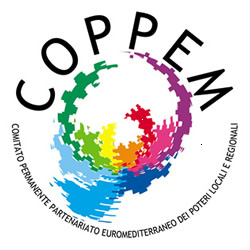Today challenges are different, so must be solution
di Mustafa Aydın, Associate Professor, President of Istanbul Aydın University
Times are hard. Change is rapid. Challenges are big. Problemswe face require even closer regional co-operation. As celebrated the 25th anniversary of the Barcelona Process on 27 and 28 November, the need to reflect upon fundamental economic and social threats appears to be crucial. The pandemic sealed off a process of technological transformation in such a way that “there is no going back”. This imposes upon us all in the education sector of the Mediterranean Basin with challenges to come up with innovative educationalsolutions. This is the perspective I cherish and through this prism I address problems at hand.
Luckily, we have mechanisms in place to counter the challenge through solid organisational set up of the Barcelona Process that equip us with necessary experience.
Nevertheless, educational challenge is not the only one, although others are directly or indirectly related to it. For instance, health crisis that led to the deepening of omnipresent global economic downturn. Also, economic misfortunes, poverty, income distribution problems, environmental degradation, female participation, desertification and inefficient use of water, all of these issues requiring urgent attention, either directly or indirectly related to the educational problems and capacity building. Ensuing, security problems, migration, terrorism, conflict problems that has recently become much more blatant, somehow relating to the educational ground.
None of these challenges, including reforming labour markets,re-building entrepreneurial environment, developing social safety networks, strengthening of female and youngsters’ employment, climate and water management can be dealt with efficiently by individual countries. These problems are cross-border problems and affect all countries in the Mediterranean Basin. These problems are visible to the naked eye, we watch and read about them in the media day in, day out. Finding solutions to these problems, as well as developing harmonious environment by defeating racist, xenophobic prejudices and upholding democracy and tolerance also requires international co-ordination. No one nation can put up a successful educational struggle by merely themselves.
Even though we have come a long way in our co-ordination of addressing problems we face in the Mediterranean Region we still need to work very hard to develop answers to the recent challenges. Today technology enables decision makers to get together without having to put up with cumbersome travelling arrangements. Hence, we are now able to meet on a much shorter notice whenever need arises for a quick decisionmaking on security, welfare and inclusion. Barcelona Process whereby EU and 12 countries in the region got together 25 years ago is providing us with a much valuable platform to develop, to share and co-ordinate implementation, which should be used even more actively and openly. Thus, I urge this platform to be used much more effectively, particularly in the educational field.
In the Mediterranean Basin, co-ordination between the EU, the countries on Northern and Southern shores should be evolved through dialogue and mutual understanding of their respective alternative views on the issues at hand. No doubt, improving educational interaction, sharing capacity building experiences will contribute to enrich epistemic environment in this “cradle of civilisation”. Therefore, we don’t only need improved educational co-operation but in this region of ours we also deserve it. At the same time, this seems to be a necessary step to take with a hindsight of the developments in the Mediterranean Region.
Conflict in Syria and in the Eastern Mediterranean is still going on, Israel – Palestine problems are still there, conflicting claims on the use of energy resources between Turkey and regional/non-regional countries raises tensions between involved parties, the conflict in Libya has come to a halt but future uncertainties are ever present. Add onto those,problems relating to migration, water management, climatic change, unemployment, female inclusion and democratization particularly for those of the Southern shore countries. How on earth we can address these problems if our decisions makers are not informed through a standard education covering a variety of disciplines?
Hence, as the 25th Anniversary of the Barcelona Process, the challenges we are facing impose upon us certain responsibility to find innovative educational solutions so that a common ground for dialogue and diplomacy can be found. In the era of digitalisation, we need to think of bilateral mechanisms to improve the capacity of Barcelona Process that can contribute to the efficiency of our co-operation in resolving multi-dimensional yet inter-related challenges. Undoubtedly, expanding educational possibilities, will also help the EU to deal with the problems it has been facing, not only from Covid19 but also around the economic hardship faced by some of its member states.
Working as a Turkey Chairman and Vice President of Standing Committee for the Euro Mediterranean Partnership of Local and Regional Authorities (COPPEM), I am proud of what COPPEM has served during this time and also confident that we will have many more accomplishments within the scope of Barcelona Process.
